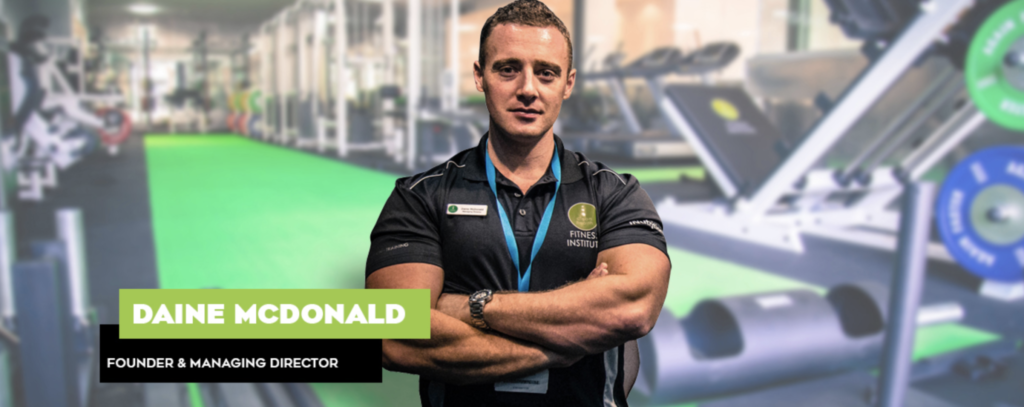
Written by Daine McDonald (Founder of CHFI)
As a founder, CEO or manager, you are going to have a lot of work and responsibility on your plate depending on what stage of your business you are in. I remember back in 2011 I brought on my first full time employee and the feeling I had of being able to delegate some of the boring tasks that as a founder you are responsible for.
Fast forward three years later and I had a team of over 35 staff and I was completed removed from that particular business in regards to day-to-day operations up to this day. So, I can relate to either end of the spectrum, which has allowed me to create a set of 3 key rules, which if you follow will improve your effectiveness as a leader within your organization.

Rule 1: Focus on one thing at a time
As a founder or CEO, mastering the art of productivity for peak business performance is crucial, as doing so will allow you to focus in on one thing at a time. This concept was not new to be but something I grasped with greater importance after attending one of Tony Robbins seminars recently, where he stressed the importance of getting into a tunnel vision like state and focusing all of your energy into the task at hand.
When in this state it is far easier to accomplish anything you put your mind to, which as a founder or CEO is crucial as the long-term success of the business relies on your direction for the company.
An example of how this might play out in day-to-day operations could be if you had assigned two hours in your diary for administration work, but then all of the sudden you started creating content or having an impromptu meeting with a staff member.
Now even though you might have felt as though you were more productive having completed a variety of tasks, the reality is the chopping and changing between in the above example three different things will undoubtedly lead to those tasks being completed competently, rather than outstanding.
As a founder or a CEO you want to be outstanding at everything you do, remember you are a role model for your team and somebody whom leads by example. Do you employ people to be competent at their job or outstanding? I think you know the answer already!
My advice when it comes to completing tasks it to do them methodically and through an order of priority related to their maximum benefit for the business. So an example of how your diary might look for a day is the following:
- 5:30am: Wake up and consume pre-workout shake
- 6:30am: Gym session
- 7:30am: Shower and drive to office
- 8:00am: Breakfast meeting with senior manager
- 9:00am: Accounts related administration tasks
- 10:00am: Article creation around XYZ
- 11:00am: General administrative tasks
- 12:00pm: Lunch meeting available
- 1:30pm: Business growth revision and strategy
- 3:30pm: Eat
- 4:00pm: General administrative tasks
- 5:00pm: End of day wrap up
- 6:00pm: Finished for the day

We have segmented stationary tasks such as admin into blocks then basing our meals where possible around meetings with senior staff or potential business connections etc. to break up the day but to also give us a longer amount of time to concentrate on tasks that require our full attention and focus without being disturbed.
Segmentation and a longer duration will allow you to focus all of your energy into the task at hand and do an outstanding – not average – job of it!
These days I spend the majority of time focusing on what I am passionate about, which is presenting and educating rather than day to day operations.
Rule 2: There are people better than you at certain things
Now many of you un-evolved founders out there are probably reading this thinking ‘Is he serious, I am without a doubt the best at everything!’, the reality is even the most successful business people in the world are not masters of everything.
At best you can hope to be a master of perhaps 2-3 things, which as a founder or CEO you should be focusing on as per point 1. The problem is many people in this position fail to delegate due to the belief that seeing as they created the business, nobody knows it as good as them. The reality is even though you built the business; it doesn’t mean you are the best person to take it to the next level in term of day-to-day operations, which is a lesson I have learned personally.
That small team that you started the company off with and built up when there was 1, 2, 5, 10 and so on staff members within a few years in many cases no longer even exists in your company as it evolves. Founding a company and scaling it takes a very special type of person, most people are not wired to build something from scratch and then pour their heart and soul into evolving nothing into something.
However I found that for every successful founder/CEO there is an unsuccessful founder/CEO, meaning that the CEO hat and the founder hat can contain two very different skill sets depending on the nature of the business.
This is why as you scale your business you need to make a concerted effort into recruiting the right staff that is able to compliment your skill set. The key areas any businesses needs are the following:
1. Leadership
So are you the captain that steers the ship and provides the ideas, vision and landscape of which the company travels? Are you able to problem solve and create systems out of nowhere to help refine your business? From experience most founders are experts here.
2. Management
Do you micro-manage or undervalue staff performance due to a perceived notion that you can do it better due to the fact you can create something from nothing? This is an inherent flaw in many founders I have been around whom can find it hard to compliment and grow their team. After all, you are able to juggle multiple balls and do anything whilst still sleeping three hours per night!
The reality is founders generally are quite manic where as the average person is not, hence why it can be better to employ an operations or general manger to manage the actual day to day operations and people in your business. A good example of a founder who motivates and educates his team rather than managing them per say is Virgin Group founder Richard Branson, he has the vision and the creative brain but leaves the operations and people management to somebody else.
3. Sales
Most founders are excellent in sales, as they are selling a service or product that they created. However depending on the industry it can actually be of detriment if the founder is selling, especially if the business is based around that person as an identity. An example of this would be Tony Robbins whose brand is he, however he doesn’t sell himself his sales team does that for him.
4. Marketing
This can be an area that is hit or miss with most founders; I have found some founders whom are horrible in this area whereas some are superb. The reality is you need to be able to step back and identify if you are good here and if not delegate, remember just because you can sell a product doesn’t mean you know how to best market or advertise it, especially in today’s age with social media marketing taking over from print media and even Google in many industries.
5. Administration
Like marketing this area is also hit and miss with founders and whilst it is essential for anybody in a senior management position to have good administration skills the reality is a founder doesn’t necessarily need to be strong here, whereas as a CEO must. Regardless administration is an area that should be delegated, have somebody handle your emails and only respond to the important ones. Your job here is to grow and scale the business, not send out invoices and book in sales appointments!
Rule 3: Create your own job description and performance metrics

Having founded many company’s and creating numerous job descriptions and KPI structures for different roles, I recall having one of my junior staff whom had nothing much to do with me a year ago ask me during a coffee catch up what I did with my time and it dawned on me… What exactly do I do? As a founder or CEO we don’t often ask ourselves this question, at least not in the detail we have done for staff we have brought on. If you look at a company hierarchical structure, it can over time go from being number 1 to number 2 as seen below…
- Founder/CEO>General Manager>Assistant Manager>Admin Manager etc.
- Founder>CEO>General Manager>Assistant Manager>Admin Manager etc.
Meaning that over time the founder and the CEO separate into two separate people as the business grows. Now for most people who start a business this is the long-term vision, where you employ a CEO to manage your business for you. However to do that if you were to step away from the business as a founder and hand over the reigns to a CEO, what would they do?
Hence why creating separate documents for both positions is crucial, some of my businesses I am both roles and in others I am just a founder so the way I operate and interact with people in those company’s greatly differs as does my responsibility. So making sure you understand this clear distinction and plan for it’s eventuality is not only beneficial to your business as a whole as it grows, but it also allows you to hold yourself more accountable when you are doing both roles.
In summary remember that although we live in a business world where value is put on money in versus money out, the reality is we tend to spend too much time pushing our business to improve our bottom line, when the focus needs to actually be turned to the time we spend doing it and how we can better optimize this most important of all processes!
To take your first steps in the fitness industry & learn more about getting qualified, enrol into our Master Coach Program here!You will not only receive your qualifications, but you will also receive ADDITIONAL Clean Health Certifications so you can really kick start your career!
Yours in success,
DM






